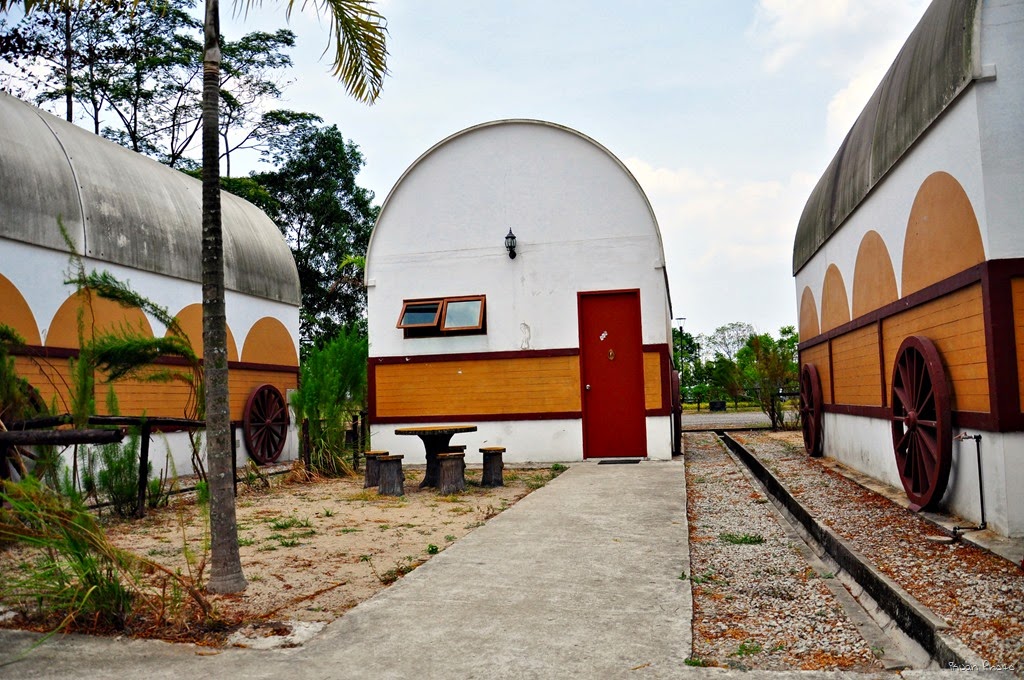Youth, in general, lead challenging lives full of commitments and fast-paced activities. Because of these, there seems to them very little time for self-care. However, it is important to balance out the stressors in their lives. This is where family support is essential.
Parents play a vital role in helping their youth to better structure their lives. It is important for parents to understand their children’s mental health and to identify their emotional needs.
Depression and anxiety are the two most common mental health conditions among youth. According to the Singapore Mental Health Study conducted in 2016, 1 in 16 Singaporeans experience Major Depressive Disorder in their lifetime and 1.6% experience Generalised Anxiety Disorder.
As parents, it is crucial to take note of certain signs and symptoms to watch for in our children and obtain timely help. Mental health conditions are considered medical conditions, and do not simply fade away by themselves, if left untreated.
Depression
Depression as a mental condition is a vastly different emotional challenge to just getting depressed. One can get depressed over a situation or somebody’s actions for a short period of time. In contrast, depression is a serious medical condition that can lead to a stage that is life-threatening, if not treated promptly and successfully.
Symptoms of Depression
Common symptoms of depression include sleep disturbance, changes in appetite, low moods, problems with concentration, a loss of interest in one’s usual activities, and feelings of worthlessness. Suicidal thoughts are present in some cases. The symptoms are persistent and last at least two weeks.
Types of Depression
There are three main types of depression:
- Major Depressive Disorder (MDD), in which symptoms last for at least two weeks.
- Dysthymia, in which symptoms last for at least two years.
- Bipolar Disorder, in which there are alternating moods with symptoms of mania and Major Depressive Disorder.

Anxiety
Suffering anxiety is very different to simply being anxious. Temporary anxiety due to a danger or unpleasant experience is a normal emotion that anyone can experience – this helps us avoid danger. However, anxiety disorder is a prolonged medical condition that needs medical treatment. Early diagnosis helps avoid the development of a chronic condition.
Symptoms of Anxiety
There are four areas to consider when identifying symptoms of anxiety disorders. Firstly, there are physical signs, such as increased heart rate, shortness of breath, muscle tension and dizziness. Secondly, there are emotional flags, including excessive worry, feeling on edge or panicky, and a sense of helplessness. Thirdly, there are mental symptoms, like negative thoughts and difficulty focusing. Finally, there may be behavioural changes – avoidance of people, tasks or situations, and experiencing troubles with sleep.
This list is not exhaustive, and each person experiences anxiety differently. However, if your child experiences persistent, excessive, and irrational anxiety, it is best to seek medical advice, as well as treatment if necessary.
Types of Anxiety Disorders
There are six types of anxiety disorders:
- Generalised anxiety disorder, which comes with constant worry and fear.
- A specific phobia, having excessive fear of a particular object or situation.
- Social anxiety disorder, with intense fear of being criticised or embarrassed in public.
- Panic disorder, with recurring panic attacks.
- Obsessive compulsive disorder, with unwanted intrusive thoughts.
- Post-traumatic stress disorder, experiencing overwhelming stress from a traumatic event.
Various factors can cause depression or anxiety disorders; often, it is a combination of reasons. There are biological and psychological risk factors. Genetic factors include an imbalance in brain chemistry or hormones, while psychological factors could be stress, childhood experiences, the individual’s personality, or addictions.
That said, family plays a vital role in helping youth to face challenges successfully and to alleviate the adverse effects of stress and anxiety.
What can you do?
Parents who are attentive in daily interactions with their children are often the first to recognise behavioural changes. It is important that when parents observe the abovementioned symptoms, they reach out to their children.
Good listening skills will foster a close relationship with your children, letting them know that you are non-judgemental and understanding. With this approach, children will be more likely to open up to you.

Reaching out to your teenage children can be a daunting task, especially if they are unwilling to speak to you. Hence, providing a safe space for your children to speak is crucial. If they are not comfortable, a third party – such as a close mature family member, a mentor, or a mental health professional – can be helpful.
Parents should spend quality time with their children. Acknowledging their feelings is important in building rapport and demonstrating empathy, allowing youth to feel safe in sharing their emotions and identifying what triggers these feelings.
When approaching your children for a conversation, look for a relaxed space, maintain eye contact, and show concern and interest towards their wellbeing. Asking them open-ended questions such as “how was your day?” can encourage elaboration, compared to close-ended yes or no questions. In this way, parents can help children to gain a deeper understanding of their own concerns. Parents can paraphrase and summarise to show attentiveness and ensure they are truly understanding their children.
When speaking with their children, parents need to stay calm, be supportive and provide positive feedback to avoid invalidating statements. Your teenagers may share something that you might disagree with, but try to withhold judgement and avoid asking too many questions, lest it be overwhelming for your children and they start to close off. If you observe or hear suicidal thoughts, express your concern, share what you observe, encourage support and offer help if needed.
It is common for parents to experience sadness, fear and worry in response to a young person’s mental issues. Parents need to take care of themselves and create their own support network. Local mental health resources include services offered by family doctors, polyclinics, Family Service Centres, school counsellors, private and social service organisations.
This article was contributed by Clarity Singapore, and is written by Sanjeevi Fernando.
With all the COVID restrictions, your family might be going a tad stir-crazy these holidays! Here are some suggestions to maintain peace and harmony at home despite cabin fever.
1. Establish a healthy routine and limit screen time.
- Yes, it may be tempting to let the children sit in front of screens all day while you try to work from home, finish housework or have a break. Do not give in to this temptation. Excessive screen time increases irritability, addiction and the chance of worsening myopia. Work with your children to set sensible boundaries around digital technology.
- As better alternatives, give them access to books, crafts, Lego and puzzles. Let them roam free in the nearest library. A love of books will let your child travel far through time and space despite current border restrictions!
- Music is another fantastic outlet for children and youth to regulate their moods while spending some happy hours exploring culture. Learning various instruments or choral singing is excellent for developing discipline, boosting brain power and improving overall well-being.
- If you and your children really need them to have some screen time, there are various enriching activities available online. They can learn a new language through Duolingo, practise their typing skills, or play games involving maths, logic, science and geography.
2. Include your children in your daily routine.

- Research shows that children who are given housework tend to grow into more independent and responsible adults. Have your offspring contribute to the family through age-appropriate tasks. You can make it fun by having laundry-folding races or dishwashing sing-a-longs.
- Instead of leaving them at home while you go grocery-shopping, why not involve them in the process and teach them how to select produce or compare prices? They can simultaneously hone their home economics and maths skills.
- Also, teaching children how to cook from a young age instils the good habits foundational for a balanced diet. It may be more efficient in the short run to do the cooking yourself, but patience with your child in the kitchen will pay off in the long run, especially when they start cooking meals for you!
3. Incorporate exercise.
- Physical exercise is essential to good mental health. Even a short walk around the block can be very beneficial, increasing endorphins and improving your family’s mood. If you live close enough to nature, you can enliven the walk with some birdwatching or plant identification – there are apps available to assist in these educational endeavours.
- Even at home, you can try out online martial arts, pilates or dance classes with your family to get the blood pumping.
4. Take turns with your spouse to have “time off”.
- Particularly if you are both working from home and do not have grandparents or domestic helpers to assist, pre-established schedules can save everyone’s sanity and manage expectations.
5. Remember to pray.
- Making a habit of praying the Divine Office, the Rosary, or just short prayers like the Morning Offering, the Angelus and the Guardian Angel prayer, lets everyone pause and recall the presence of God, helping them see others in a more charitable light. At the end of each day, you and your children can thank God for various blessings received throughout the day, going to bed in a more joyful frame of mind.
Can you think of more holiday tips to share with other families? Do leave them in the comments section below this article.
Any Catholic educator–-especially those teaching in Catholic schools–-will eventually face some tough questions from students regarding the faith. How can we best answer and educate them about the Salvation Story? Here are some frequently asked questions compiled by a teacher from a Catholic school, and some suggested answers for our inquisitive young people.
1. Is God real? How do you know?
There is no hard proof that God is real or exists. However, if you observe the Earth carefully, you will know that someone superior to Man created it. Everything hangs in perfect balance – the atmosphere, the rotation of the Earth around the Sun, and all the other things which we take so much for granted. The other creation that requires close observation is the human body. Up until today, doctors are unable to fully comprehend the workings of the body; it is a deep mystery. These two creations would point to a super intelligent being as creator.
2. Why must I attend Mass? It’s boring.
The Mass is a coming together for the celebration of the Eucharist. In the Bible, Jesus taught His apostles that they must eat His flesh and drink His blood to live. “For where two or three gather in my name, there am I with them.” (Mt 18:20). You can pray alone, but the Catholic faith is a communal religion. Didn’t Jesus say that if we cannot love our neighbor whom we can see, how can we love God whom we cannot see? To help yourself enjoy the mass, it is good to be attentive and listen to the priest as he takes you through it. Try to participate in the mass by volunteering your services at the altar or through some other means to make it meaningful to you. Being involved is the fastest way to learn and understand.
3. Can I do anything I want before declaring my belief in God when I am about to die?
Your life is created by daily habitual actions. If you lead a life of wanton living, it is highly unlikely that you would think of God when you are dying. Also, the soul would be unable to face God if it were not clean.
4. Why is our God a jealous God?
This is probably an idea taken from the Old Testament where we read that our God is jealous. The best way to explain this is through our love for someone. When we love someone, our whole attention is focused on that person. God wants us to centre our attention on Him, because He alone is the way to joy, truth and peace. As such, He is ‘jealous’ in the sense that He does not want us to stray from Him, for fear of losing us forever.
5. Is it a sin to masturbate?
Sex is an expression of love between persons of the opposite sex. It is possible only between two consenting adults and if one party does not want it, it should not take place. Masturbation does not require consent from another party, and is solely intended for giving oneself pleasure. It is an act of selfishness as there is no self-control required. Anything that is selfish leads to sin.
6. Is God a man or a woman?
God is neither man nor woman (CCC370). He is pure spirit, and not bound by biological gender in the way we are. God created mankind in His image, and thus our humanness is a reflection of His holiness – not the other way around.
7. Why must we have RCCE and then catechism on Sunday again?
The purpose of a Catholic school is to offer both religious education as well as academic training. It is a praying community that purports to live as closely as it can to the Gospel. If a Catholic school does not have some religious programmes, how does it differentiate itself? It is important to be introduced to God at a younger age so that as you grow older, you can question and dig deeper to find out more about your religion to deepen your faith. This is also why attending catechism on a Sunday is required by each parish up till Confirmation. While Catholic Schools and catechists offer slightly different programmes, the intention is the same: to form useful habits to equip you for the vicissitudes of life. The Catholic population is privileged to have so many organisations within and outside of the Church to help all Catholics through various stages in life.
8. Why must I go for confession?
Confession is a Sacrament ordained by the Church to help Catholics expiate their sins. Throughout the Bible, you will read that when a sin has been committed, restitution must be made. We are to first seek out the one we have hurt and ask for forgiveness. Then, to be accepted back into the community of God (i.e. the Church), we are to confess our sins. If the sinful action is against God alone, then only confession is necessary.
9. Hell must be a fun place. I don’t mind going there.
People tend to paint a fun picture of Hell as the place where they will find many friends and have a good time. Human experience tells us this is unlikely to be the case. People need opposites to appreciate the states of their lives. For example, you will appreciate leisure only if you are extremely busy for a period of time. As a hardworking student, you will look forward to the school holidays. If your life was one of debauchery, you would not enjoy it for long. Like the prodigal son, many who indulge in unfettered hedonism eventually find themselves feeling empty and in pain. Hell is an infinite extension of this loneliness. Coupled with the company of every wicked, selfish and evil person that’s ever lived, it is a circus of fear and danger. Not so fun when you think about it, is it?
St Thérèse of Lisieux once said, “It is such a folly to pass one’s time fretting, instead of resting quietly in the heart of Jesus.” As educators, we sometimes take it upon ourselves to place the interests of our students before our own, only to struggle with this millstone. We can get too busy to care for our own well-being, rest and quietude for the progress of those under our care.
Creating a serene state of mind and removing mental clutter is essential to this vocation, and a retreat (spiritual or secular) can go a long way in rejuvenating your life. Here are four great retreat venues for you to find peace and recharge your batteries.
D’Kranji Farm Resort

Putting some distance between you and the concrete jungle would allow for some much needed breathing space. A farm stay and its rusticity provides a different experience from the usual urban staycations, while being in close proximity to nature expands your mind and helps you get more in touch with God. Engage in prawn fishing and enjoy the fruits of your own labour, or pamper yourself with a relaxing massage at Nopphawan Massage & Spa. There is also the world’s first swiftlet museum where you can learn more about swiftlet ecology and the production of edible bird’s nests. The villas are equipped with modern facilities like wide-screen TVs and Wi-Fi, along with nice features like open air bathrooms and porches offering picturesque views.
10 Neo Tiew Lane 2, Singapore 718813
Phone: 6898 9228
Changi Cove

Housed in a restored heritage site, Changi Cove offers contemporary facilities while retaining its old colonial charm. Tucked away in a quiet corner in Changi, the retreat is nestled amidst lush greenery and a stone’s throw from sights like Pulau Ubin, Chek Jawa and the Changi Chapel Museum. The Cove’s MyPlace retreat rooms are also decked in a minimalist style, offering a cosy environment for relaxation. The idea walls provided in the rooms also encourage you to express your thoughts as you seek clarity and reflect on the lofty calling as an educator.
351 Cranwell Road, 509866
Phone: 6922 6122
LifeSprings Canossian Spirituality Centre

We cannot go without mentioning at least one Catholic retreat centre in this list. LifeSprings is situated on a hilltop beside the Bukit Timah Nature Reserve within the conserved premises of the Canossian convent. The retreat has been under the care of the Canossian congregation since 1999. Within its premises, there are many private spaces set aside for you to pray and spend quiet time. A range of prayer tools are provided to further help retreatants in need of spiritual direction. There are also healing workshops conducted, where you can cast aside your troubles and focus on your spiritual well-being.
100 Jln Merbok, 598454
Phone: 6466 2178
Punggol Ranch

Finally, for a getaway that is off the beaten track, there is no retreat venue more private and yet one of a kind as Punggol Ranch. Deemed Singapore’s cowboy town, expect a no-frills country style stay where you can find undisrupted rest in the furnished wagon rooms. In between relaxation, there are many horse-related activities to participate in like guided horse rides, horse and pony feeding and stable tours. The aim of the pastoral setting and design is to discourage our obsession and reliance on technology, thus creating a conducive environment for meditation and exploration.
900 Punggol Rd – Track 24, Singapore 829168
Phone: 6690 0900
Resorts World Sentosa De Stress Retreat

Perhaps sometimes you just want to do away with the fuss of planning a retreat and leave it in the hands of the professionals. The De Stress Lifestyle Retreat with Singapore’s first destination spa ESPA offers a 4 days, 3 nights package that includes daily personalised massages, naturally based therapies, restorative meditation and unlimited access to facilities like the gym and lounges. A spa retreat such as this provides a holistic relaxation experience that caters to both mind and body.
18 Sentosa Gateway, 098269
Phone: 6577 8880
In a rat race where good grades are far too often equalled to success in life, the heat is turned up not only for students, but teachers as well. Here’s what we can do to beat the exam stress:
1. Recognise
Being instruments of change to pupils whom we interact with every day, it is important that we first recognise our own stresses. Only then can we help the students who are struggling. Be it expectations from superiors, or responsibility towards parents… know your triggers! Also, look out for students who are exhibiting examination stress syndrome. The symptoms include headaches, depression and loss of appetite. More than just emotional well-being, identify and help students who need more coaching in their studies, especially during the exam season.
2. Support
Avoid placing unnecessary expectations on students, and be supportive at all times. Special attention should be given to those who are academically weaker. Offer a listening ear when one is needed and support the students morally. Boost their confidence with a simple “You can do it!” and let your positivity shine through. Make sure you too, have a support system in place, in the form of family and friends, so that your needs are well taken care of.
3. Relax
Relaxing during the exam period should not be seen as a taboo. In fact, it is all the more necessary for us to create a relaxed classroom where learning takes place more effectively. Keep the mood light-hearted and perhaps crack a joke or two to ease the exam tensions. Instead of emphasising on grades, show care and concern by reminding students of the importance of eating healthy and having enough sleep. Off work, find ways to recharge and destress by getting a back massage or simply relaxing by the pool.
4. Exercise
Exercise is a good way to deal with all that pressure for teachers and students alike. Physical activities help to relieve the body’s “fight-or-flight” biological response to stress caused by increased adrenaline and cortisol. Take a break from revisions and marking by engaging in sports which are not too energy-consuming, or take a short walk in the park to help clear one’s mind.
5. Pray
“Be anxious for nothing, but in everything by prayer and supplication with thanksgiving let your requests be made known to God.” (Phi 4:6) When all is done, it is important that we put our trust in God. By offering ourselves in prayer, we surrender our anxieties and fears, reminding ourselves that God’s ways are above our ways. When we’re in tune with God, we put Him in charge of our students and our work, and learn to let go of our own expectations and insecurities.
Teaching can be notoriously difficult and draining on the soul. Take some time during the June holidays to explore these 10 guaranteed ways a teacher can recharge spiritually, emotionally, and physically!
10. Live a day of tech detox.
No phones, no computers, no TVs, no internet, no technology. Like all our precious smart devices, our lives need recharging too, and these things that we unknowingly spend so much time on seriously distracts us from the small moments of beauty in everyday life. The statement, “God is everywhere”, though we sometimes tend to read as figure of speech, is in fact meant to be understood literally.
While some daily tasks might inevitably become more challenging now that technology have integrated so much into our lives, nothing is entirely impossible. Plan ahead for this as well, so that the anxiety of being “cut-off” may not be overwhelming. Let friends and family know that you will be uncontactable for a day, and set up an emergency contact through other means such as the home phone instead. Detox yourself of all these that constantly demands your attention, and refocus your entire being on the presence of God in everything around you and in you.
9. Seek Gratitude.
Try to live a full day in a disposition of gratitude, and allow everything to be transformed by it. Imagine putting on glasses of gratitude before you start the day; everything you experience or encounter now goes through a gratitude filter first, before reaching your eyes. While this may be easier said than done, we can start with the simple things and it will grow on you more easily than expected. The sound of children playing in the distance, those quirky habits of loved ones that only you notice, or even a random inanimate object that looks like a funny face.
We often allow our thoughts to be so filled with work and busyness that naturally, the grace of gratitude is one of the first things we forget about. With a little more time during the holidays now, let us actively seek to bring this grace back into our hearts. Slowly, even seemingly negative events in life can contain a cause for gratitude to God.
8. Reconnect with someone important to you.
Your spouse, partner, parents, friends, children, and so on. Has there been someone in your life you regard with significance, but may have neglected to spend time with? The June holidays present us with the perfect opportunity to reconnect with these important people. And remember, connecting with someone implies something much more profound! The popular term we like to use is “HTHT” or “heart to heart talk”. Though a little cheesy and awkward, the term does help remind us what is truly important – the conversation, and not the activity, venue, or even context for a meeting.
Even if this is someone we see daily, or even share a house with, sincere connection can be difficult for a busy and exhausted teacher. Sincere connection requires time and effort on your part to listen as well as share about yourself. But this is one of the surest ways of feeling instantly refreshed and energised, since God has made humans social creatures, modelled after His own Trinitarian self.
7. Start an exercise regime.
This can be as simple as a 10 minute run in the morning, or as intricate as a planned workout programme. But what is important is to keep this constant, develop it into a habit and make it a regime that you follow at a constant rate. Of course, teachers will know that exercise helps with stress because of the increased production of the endorphin hormone. But exercise really should not be looked at as a quick fix, but as a constant in our lives.
Regulating the chemical make-up of our physical selves will not only lead to a healthy body, but also a healthy mind. In fact, a third dimension can benefit from a regular exercise regime as well – faith. When you feel like giving up during a run, when your muscles burn and you question why you torture yourself, you can offer this suffering as a form of prayer for someone too. By putting yourself on an exercise regime, you can in fact strengthen body, mind and faith.
6. Let the love flow.
Spend some time to volunteer at a charitable cause or in a ministry at church! While it sounds counter-productive to engage in more activities in hopes of recharging ourselves, you will realise that we often in fact receive more than we give.
One favourite analogy used to describe this is the example of the Sea of Galilee and the Dead Sea. Both are lakes fed by the same waters from the Jordan River, but one lake is teeming with flora and fauna, while the other is… well, dead. Our souls are very much like these lakes, where we produce much fruit and support life if we allow love to flow both into and out of us. But if we only seek to receive love and not let it flow out, our souls might become like a dead sea. So take the opportunity this month to let the love flow! After all, “faith by itself, if it has no works, is dead” (Jam 2:17).
5. Rediscover God in nature.
Much like the way artists leave a signature or some form of identifying mark in their works, God has also undoubtedly left an imprint in every creation. After forming each one, God had declared every creation to be good. And this wealth of goodness still surrounds us today, given to us in love, and certainly avenues where we can revitalise our tired bones with God’s own presence. All we need to do really, is to remember to stop and smell the flowers.
Try immersing yourself in nature again, and ask yourself, Where are you?” It is a strange but charming question that reminds us to notice everything, even the tiniest details, and with all five senses of the body. It is one thing to walk past the trees and see that they are green, but it is an entire different experience to also hear them swaying in the wind, to notice the kind of fruits it bears, and to see the birds hidden in its foliage.
4. Participate in a retreat.
Retreats are one of the best ways to find spiritual solace, and to ease yourself back into God’s grace. To actively take yourself out from the world for a few days, and to fill your schedule with prayer and reflection instead certainly does wonders for the soul. In his encyclical, Deus Caritas Est (God is Love), Pope Benedict XVI reminds us that, “Anyone who wishes to give love must also receive love as a gift.”
By attending a retreat, you are allowing yourself the space and time to open your heart again to a God who does not stop loving us; it is often us who forget to accept this love. Thankfully, the Catholic Church in Singapore is wonderfully active when it comes to retreats. In fact, there are two retreats happening in June 2015 which you might like to consider:
- Marriage Retorno Weekend (for married couples only)
- Divine Love Retreat with Fr Vallooran
You could also try exploring the many programmes organised by the several Catholic retreat centres here. Most of these programmes are also available to anyone, regardless of age, gender, race or religion.
- Lifespring Canossian Spirituality Centre
- Religious of the Cenacle
- Franciscan Missionaries of Mary
- Kingsmead Centre for Ignatian Spirituality and Counselling
- Good Shepherd Oasis
- Montfort Centre
3. Spiritual reading.
Spiritual reading is the practice of reading books for the purpose of growing in holiness. Different from lectio divina which focuses on the bible, spiritual reading can be done with many different books such as the writings of the Doctors and Fathers of the Church, lives of the saints, doctrinal writings, and so on. Many saints of the Church have described spiritual reading as an invaluable source of inspiration and strength to them, and have fervently recommended this practice.
St Josemaría Escrivá likens spiritual reading to building up a store of fuel, “It looks like a lifeless heap, but I often find that my memory, of its own accord, will draw from it material which fills my prayer with life and inflames my thanksgiving after Communion.” If we commonly read self-help books on business, management, health, and so on, then what puts us off when it comes to books on spirituality? While spiritual reading does not sound particularly relaxing, especially since it involves some deep thought and reflection, we can trust the advice of St Escrivá to build a store of fuel in ourselves through reading, so that we are better prepared to handle the demands of teaching. On this page, a list of recommended reading is freely available.
2. Interior prayer.
Interior prayer, or mental prayer, is a form of prayer where one loves God through dialogue, meditation, and contemplation of God’s words. It is distinguished from other forms of prayer which uses set prayers. One of the most important writers of interior prayer is St Teresa of Avila, who describes, “Contemplative prayer is nothing else than a close sharing between friends; it means taking time frequently to be alone with him who we know loves us.” If there are any similarities between the thousands of saints of the Catholic Church throughout history, it is that every one of them held a deeply personal relationship with God through prayer. What better way is there to revitalise our weary hearts than to go to the source of life?
St Jean-Baptiste de La Salle, patron saint of teachers, had been a firm advocate for interior prayer. He believed that teachers and students should be taught to pray in this way, and wrote an easy to read book, Explanation of the Method of Interior Prayer, for this purpose. It might please you to know that this work is freely available here.
1. Receive the Sacraments (more regularly).
Finally, the number one recommended and most effective way we can recharge ourselves is none other than through the sacraments! The Catechism of the Catholic Church states, “The whole liturgical life of the Church revolves around the Eucharistic sacrifice and the sacraments.” The seven sacraments have long been a sacred tradition in the Catholic Church, instituted by Christ Himself, practiced by the apostles and the early Church, and passed on through history. Today, we are incredibly blessed with the opportunity to continue participating in such important and real signs of the faith in Jesus, through His Church.
“Sacraments are ‘powers that comes forth’ from the Body of Christ, which is ever-living and life-giving. They are actions of the Holy Spirit at work in his Body, the Church. They are ‘the masterworks of God’ in the new and everlasting covenant.” (CCC 1116). With a little more time on our hands now, there is really no better way of refreshing yourself and preparing for the new school term, than to experience God through His sacraments, which are so easily and widely available to us!








